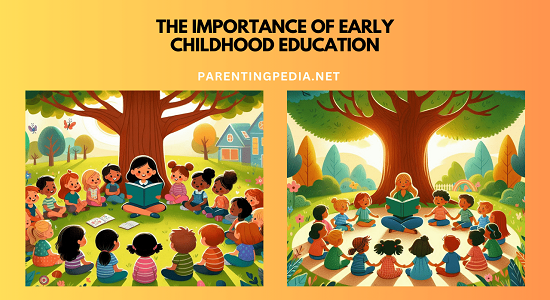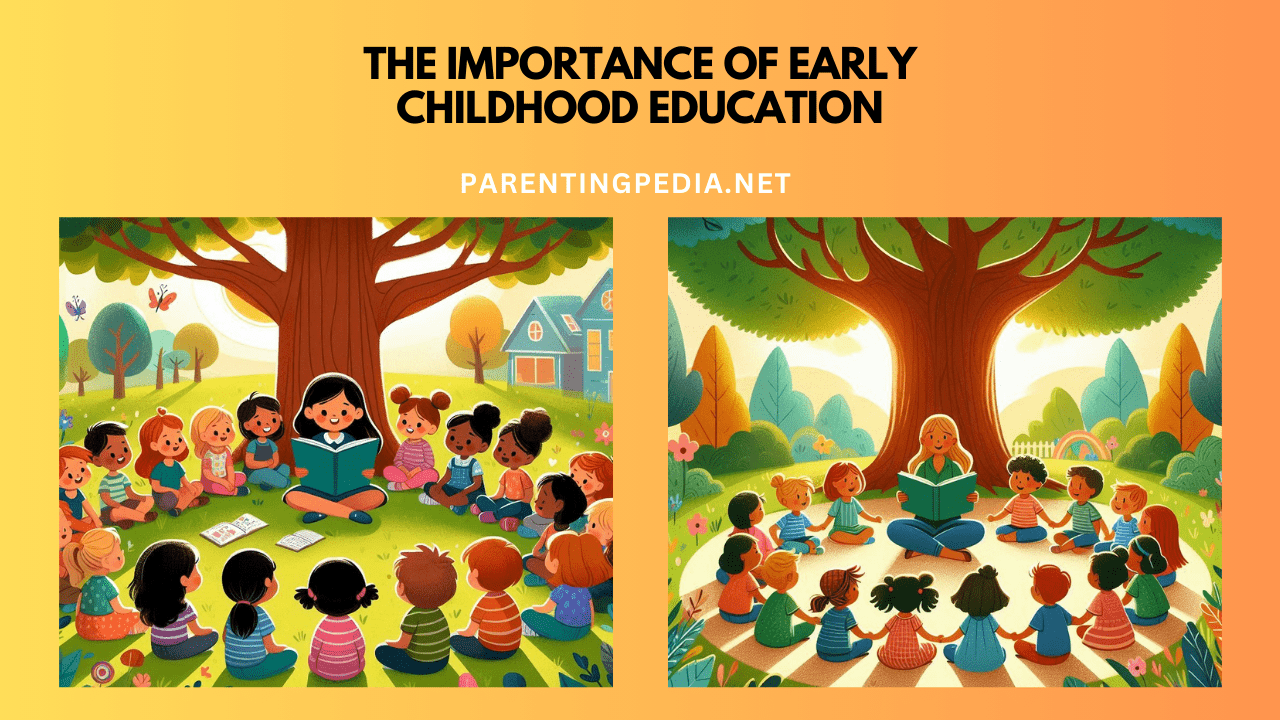Early childhood education (ECE) refers to the period of learning that takes place typically from birth to eight years old. During this time, children experience rapid cognitive, social, and emotional development. Early Childhood Education (ECE) programs, such as preschools and kindergartens, are designed to nurture these developmental areas through play-based learning and interactive activities. Research shows that early education sets a strong foundation for lifelong learning, academic success, and well-being of children. The importance of ECE has gained widespread recognition, not only for its role in individual child development but also for its wide impact on society. By promoting essential skills in children, ECE plays a crucial role in shaping a child’s future and contributing to a more equitable society.
The Role Of Early Childhood Education In Development
Early childhood education plays a pivotal role in the holistic development of children. It is essential for cognitive development, social and emotional development as well as physical development of child.
Cognitive development: Early childhood period is crucial for cognitive development of child, particularly in areas such as language acquisition, problem-solving, and critical thinking. Structured ECE programs are designed to nurture these skills through play-based learning, storytelling, and hands-on activities that engage children in ways that are both enjoyable and educational.
Social and Emotional development: Social and emotional development is another critical aspect of early childhood education. In an ECE setting, children learn to interact with their peers, develop empathy, and manage their emotions. These social skills are essential for child in terms of building relationships, resolving conflicts, and functioning effectively in future . Emotional regulation, which is often nurtured through positive reinforcement and guided interactions, helps children develop resilience and a sense of self-worth.
Physical development: Physical development is also a key focus of early childhood education. Through ECE activities, children improve their coordination, strength, and overall health. Early Child Education programs often include physical activities that encourage movement, such as outdoor play, dance, and sports, which are essential for a child’s physical well-being and contribute to their ability to focus and learn.
Long-Term Benefits Of Early Childhood Education
The benefits of early childhood education extend well beyond the early years, influencing academic, social, and economic outcomes throughout a person’s life:
Academic Success: Children who participate in high-quality ECE programs are more likely to succeed academically. They tend to have better literacy and numeracy skills, which set the stage for continued academic achievement. This early success in school often leads to higher levels of educational accomplishment in future life.
Social Outcomes: Children who receive early education are better equipped to navigate relationships and communicate effectively. They learn essential life skills, such as cooperation, negotiation, and respect for others, which are critical for building strong interpersonal relationships. These skills are not only important for personal well-being of child but also for contributing positively to society.
Economic Impact: From an economic perspective, early childhood education has been linked to higher earnings and lower crime rates in adulthood. Individuals who attended quality ECE programs are more likely to secure stable employment and earn higher wages than their peers who did not receive early education. Additionally, these individuals are less likely to engage in criminal behavior in future.

The Impact Of Early Childhood Education On Disadvantaged Children
One of the most significant advantages of early childhood education is that it reduce the gap between low and high income families. Children from low-income families or marginalized communities often start school with fewer resources and less exposure to educational opportunities. ECE programs can help bridge this gap by providing a supportive learning environment that provide development opportunities for disadvantaged children. Studies have shown that children from low income families who participate in ECE programs are more likely to perform well in school. These positive outcomes not only benefit the individuals involved but also contribute to breaking the cycle of poverty and inequality in society.
The Role Of Parents And Caregivers In Early Childhood Education
Importance of Parental Involvement: While early childhood education programs are essential, the role of parents and caregivers cannot be overstated. Parents are a child’s first and most influential teachers, and their involvement in early education is important for success of child in future. Effective communication between educators and parents is also vital, as it ensures that both parties are working together to support the child’s development. Engaging in activities such as reading to children, playing educational games, and encouraging curiosity can significantly enhance a child’s learning experience.
Also Read: Some Fun and Educational Activities to Boost Your Child’s Brain Development
Ways parents can support early learning at home: Children whose parents are actively involved in their education tend to perform better academically and socially. This involvement can take many forms, including volunteering in the classroom, attending parent-teacher conferences, and supporting learning at home. Engaging in activities such as reading to children, playing educational games, and encouraging curiosity in children also enhance a child’s learning experience.
Collaboration between educators and families: Collaborative efforts between educators and families create a strong support system for children, promoting consistency between home and school environments. This partnership is particularly important for children with special needs or those facing significant challenges, as it ensures that their unique needs are met both at home and in the educational setting.
Challenges In Early Childhood Education
Early childhood education faces significant challenges, including accessibility and affordability, shortage of qualified teachers and funding for ECE programs:
Accessibility and Affordability: One of the most significant issues in Early Child Education is accessibility and affordability. High-quality ECE programs can be expensive, making them inaccessible to many families, particularly those from low-income backgrounds. This lack of access aggravate existing inequalities, preventing many children from receiving the early education they need to succeed.
Training and Retention of Qualified Educators: Another challenge is the recruitment, training, and retention of qualified early childhood educators. Teaching young children requires specialized skills and knowledge, yet many educators are underpaid and undervalued. Adequate training for teachers, fair compensation, and ongoing professional development is important for maintaining the quality of early education programs.
Policy and Funding Challenges: Policy and funding challenges also pose significant obstacles to the expansion and improvement of early childhood education. In many countries, ECE is not prioritized in government budgets, resulting in underfunded programs and inadequate resources. Increased investments for early childhood education is essential to ensure that all children have the opportunity to benefit from these programs.
Conclusion
In conclusion, the importance of early childhood education cannot be overstated. By contributing in cognitive, social, emotional, and physical development of child, Early Childhood Education programs build the foundation for coming success of children. The long-term benefits of early education particularly for disadvantaged children are huge, making it a critical area for investment by governments. By being a part of Early Childhood Education, children receive the best possible start in life and yield significant returns in the form of better academic outcomes, stronger social skills, and positive contribution to societies.
FAQ
What is meant by early childhood education?
Early childhood education refers to the structured learning and developmental experiences provided to children from birth to around eight years old. It focuses on nurturing cognitive, social, emotional, and physical growth through group and play-based activities, laying the foundation for lifelong learning, academic success, and overall well-being.
What is the aim of early childhood education?
The aim of early childhood education is to support and nurture the overall development of young children. By promoting cognitive, social, emotional, and physical growth, ECE prepares children for future academic success, promotes positive social interactions, and builds a strong foundation for lifelong learning and overall well-being.
Remember, the greatest reward of parenting lies in watching
your children soar with love and confidence.
Till then keep smiling and be happy
🎉 Score Freebies by Completing Fun Offers – Start Now!

